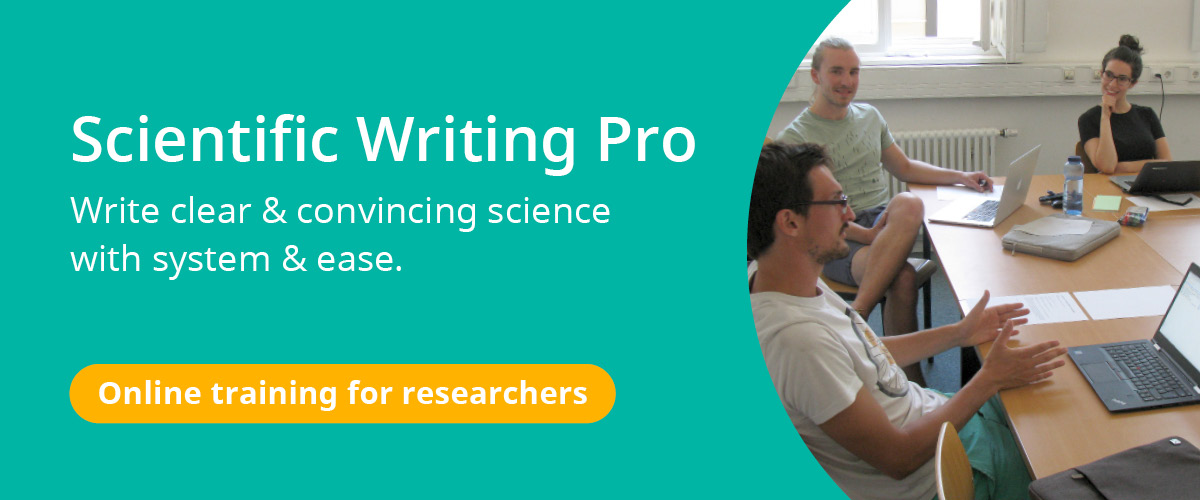
Next group starts in October 2026.
For a notification about registration start send a short email to pro@writingscientist.com
Do you struggle with your scientific writing?
Does your writing advance too slowly, as you fight with every sentence, questioning almost every word?
Or maybe you enjoy the act of writing — but the text you produce is too long and disorganized. You don’t know how to structure it and end up rewriting it from scratch.
Maybe you are not a native speaker and writing in English feels uncomfortable.
And no matter how much you revise your text, it never seems to be good enough for your supervisor.
Whatever your writing issues are, it all boils down to this:
You never learned how to approach scientific writing — but now you are expected to do it like a pro.
- How to express your thoughts clearly so that others can understand?
- How to write precisely and concisely at the same time?
- How to develop your half-baked thoughts and structure them for writing?
- How to organize yourself and use your time efficiently?
- How to approach a big writing project such as manuscript or thesis?
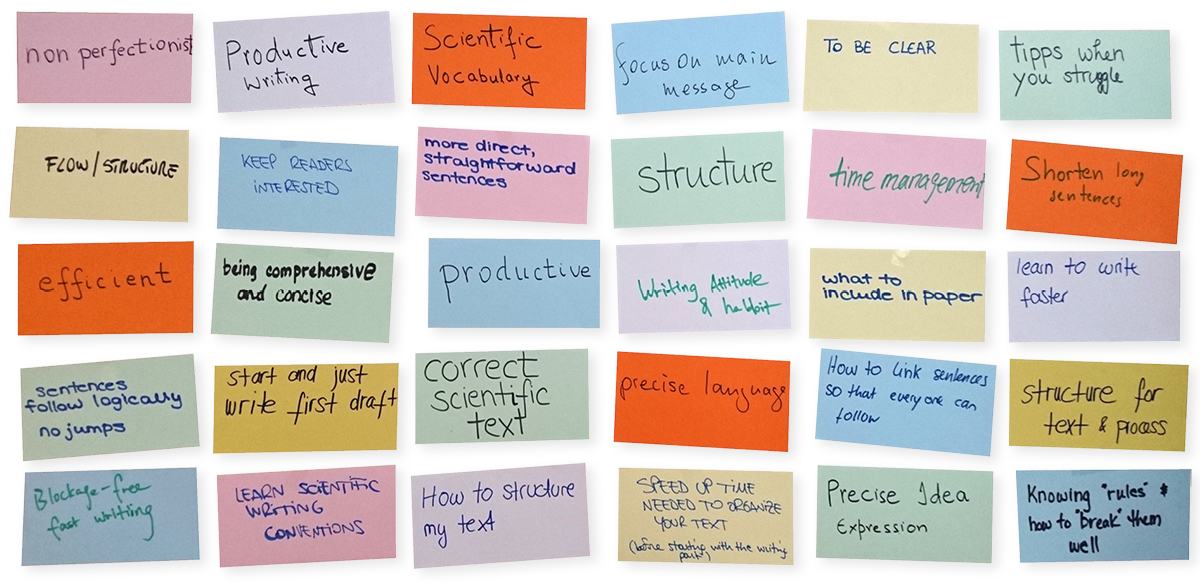
Learn to write better texts faster & easier
No doubt: writing skills belong to the core competence of every scientist.
What is the worth of your research if you can’t communicate it effectively to your research community?
But I have good news for you:
Scientific writing doesn’t have to be hard and tedious.
I loved the practical nature of the course and that it focused on tools which can be immediately implemented.
With the right strategy you can build your scientific writing skills easily — even with joy!
My approach is writer-based, proceeding from the inside to the outside:
- Stop the suffering by optimizing your writing process.
- Increase your writing output by developing productive routines.
- Improve your text quality through know-how, practice, and feedback.
Write your science like a pro
In the 8-week course Scientific Writing PRO you:
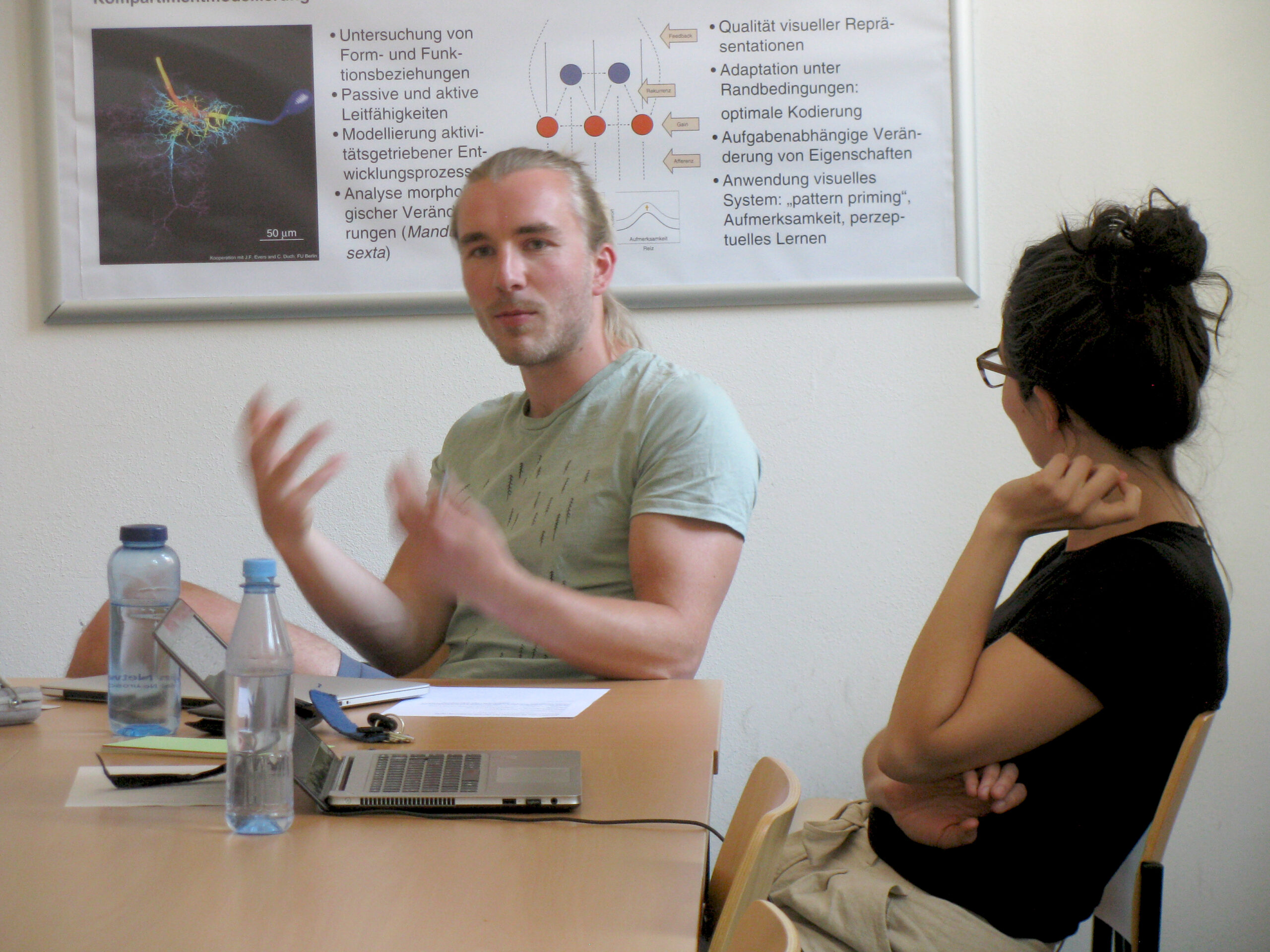
-
✅ optimize your writing process & learn to write easily and productively
✅ develop your writing skills with a perfect mixture of know-how, exercises, and peer feedback
✅ learn to structure research papers for clarity & impact
✅ learn to write precise, yet easy-to-read texts
✅ achieve your writing goals with the support of an accountability partner from the course.
I joined the course “Scientific Writing Pro” at an early stage of my PhD program because I wanted to improve my scientific writing from the beginning. And I have learned a lot! I have learned how to evaluate and write a paper, and it made me more confident in my future writing. I can highly recommend this course to other researchers — it will give you training in a systematic manner.
Expect a balanced mixture of learning, practice, support & feedback
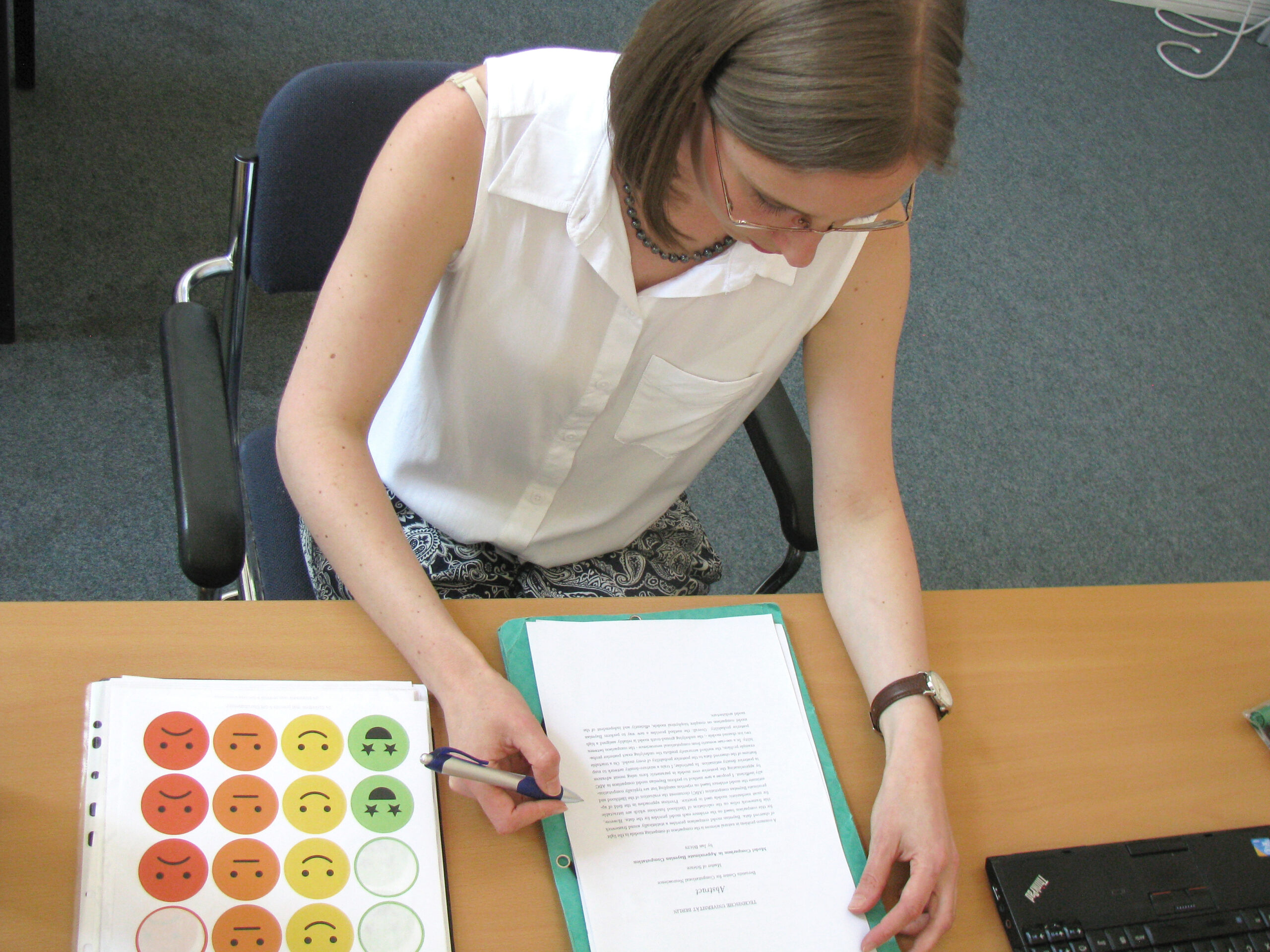
-
⭐ 4 bi-weekly modules with videos, handouts & exercises
⭐ 3 moderated peer-feedback training sessions
⭐ 5 Q&A sessions
⭐ bonus support: free monthly peer-feedback sessions for alumni
Course dates & schedule

- The course runs from Oct 05, 2026 until Nov 27, 2026.
- Bi-weekly module rhythm. (All modules can be accessed immediately for individual study.)
- Live sessions take place Fridays at 3 PM (UTC+2 until Oct 26, UTC+1 afterwards):
- Q&As (0.5-2h) on Oct 09, 16, 23 and Nov 06 and 20
- peer feedback (2h) on Oct 30 and Nov 13 and 27
My greatest difficulty was to start writing. After I took this course I have submited 2 articles that were “stuck”!
Meet your trainers
![]() Dr. Martina Michalikova is a biologist and computational neuroscientist who obtained her doctoral title in 2016 from the Humboldt-Universität zu Berlin. She is also a certified writing consultant specialized in scientific writing in English as a second language.
Dr. Martina Michalikova is a biologist and computational neuroscientist who obtained her doctoral title in 2016 from the Humboldt-Universität zu Berlin. She is also a certified writing consultant specialized in scientific writing in English as a second language.
Since 2017, she has been working as a freelance trainer for scientific writing & publishing, giving workshops, leading writing groups, and providing individual writing support as a coach & consultant. Since 2020 she is leading the Scientific Writing Pro online course, which has been successfully completed by over 80 students by now.
 Dr. Kerstin Minnich is a biologist and certified writing consultant who obtained her doctoral title in Human Biology at the Ulm University Hospital, followed by a postdoctoral research period in the fields of endocrinology, immunology and cancer biology.
Dr. Kerstin Minnich is a biologist and certified writing consultant who obtained her doctoral title in Human Biology at the Ulm University Hospital, followed by a postdoctoral research period in the fields of endocrinology, immunology and cancer biology.
In 2016, she founded the editing service LIFE SCIENCE WRITING. Besides editing scientific texts, she is now giving workshops on scientific writing and working as an individual writing coach. In 2021 she has joined Martina as a co-trainer for the Write Up Your Paper online course and now, in 2023, is joining the Scientific Writing Pro course as well.
I was blown away by a free lecture during which I realized I needed this course. I expected help to structure and facilitate the writing of scientific articles and increase my productivity. But I got much more than that: every day writing habit, laboratory notebook, time management… Thank you, your work needs to be continued!
Module overview
Module 1: Writing process & productivity
Here you optimize your writing process to write smoothly and without suffering and improve your writing productivity to increase your writing output.
- Start developing your writing skills painlessly
- What type of writer you are and how you can use your strengths to compensate for your weaknesses
- How to optimally approach the different phases of the writing process: research & prewriting, structuring, drafting, revising
- How to benefit from giving & getting peer feedback
- How to get into writing fast and combat writer’s block
- How to write productively in a long-term, sustainable way
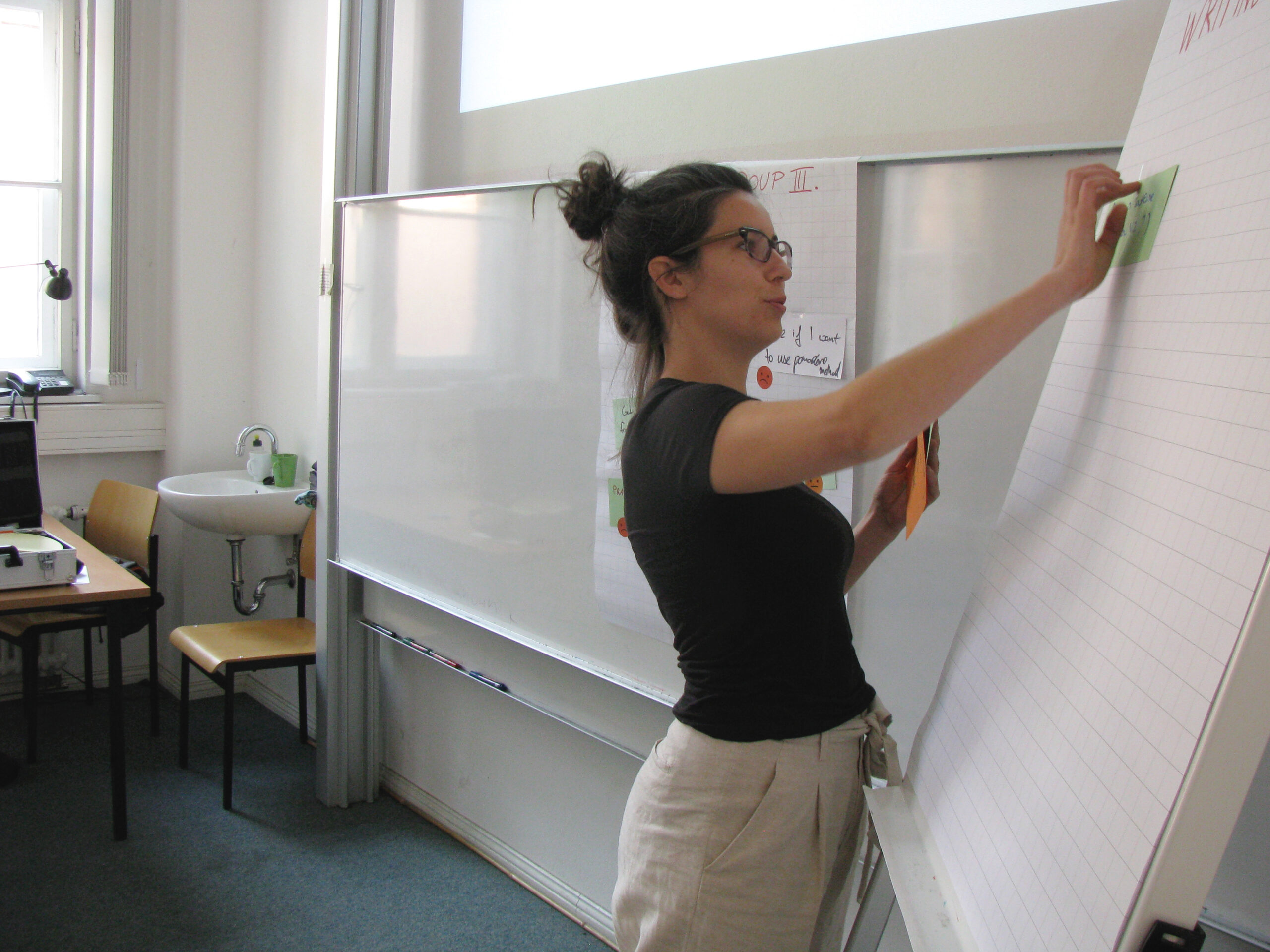
Module 2: Writing research articles
Here you learn to structure research articles for great readability & impact.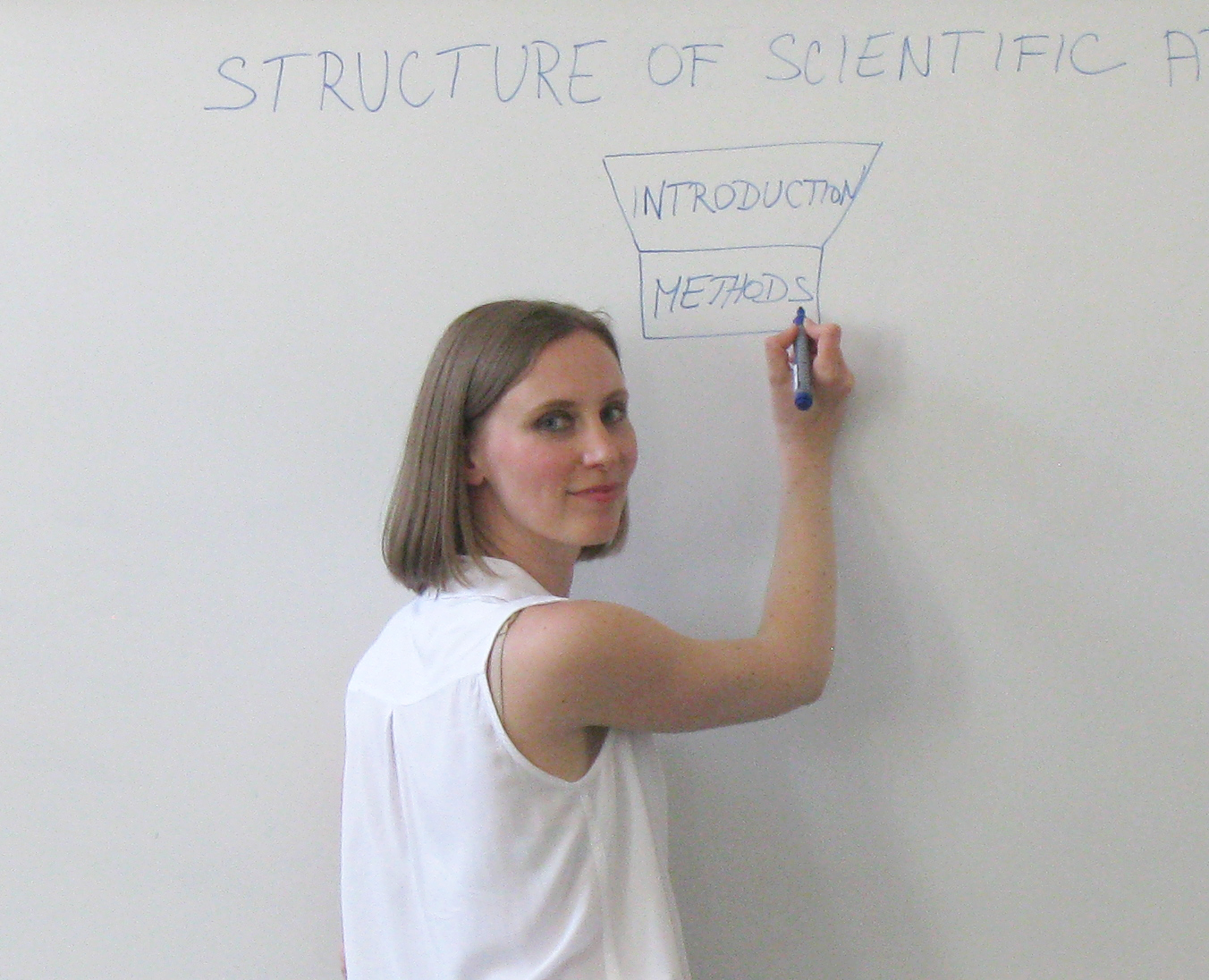
- How to structure each section of a research article: Abstract, Introduction, Materials & Methods, Results, Discussion
- How to write a compelling title
- How to create a storyline for your research article
- Comparing the general conventions with the particular situation in your own field
- Understanding readers’ expectations and using the reader’s perspective to communicate your research findings effectively
- The do’s and dont’s of writing research articles
Module 3: Paragraph & sentence structure. Scientific language & style
Here you learn to write well-structured, clear, and concise scientific texts.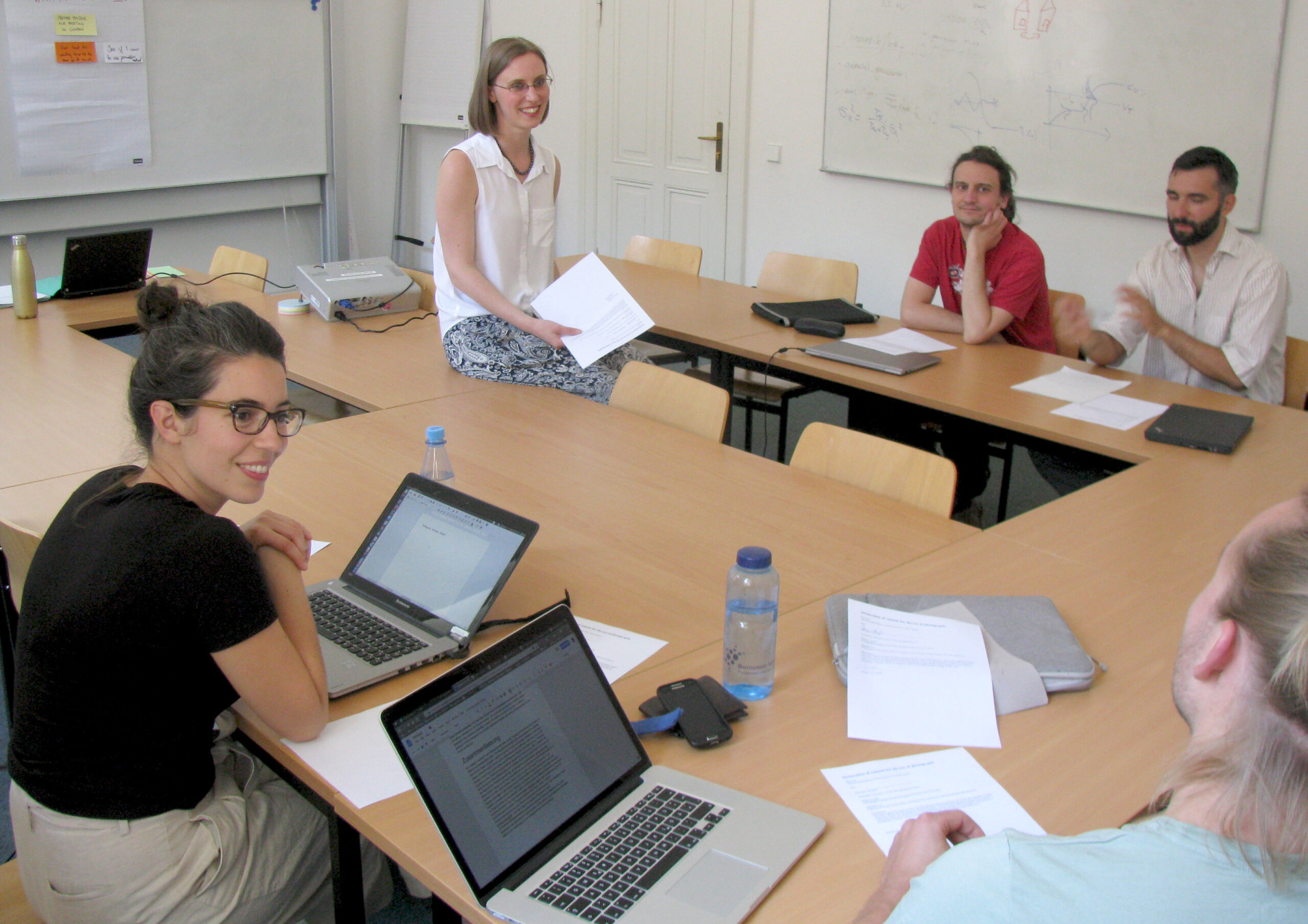
- Paragraph structure: key to easy-to-read texts
- Sentence structure: how to create a logical flow in your writing
- Text flow: methods to improve the readability of your texts
- Scientific language & style: how to write clearly, concisely, and precisely
Module 4: Scientific publishing
Here you learn the know-how of effective scientific publishing.
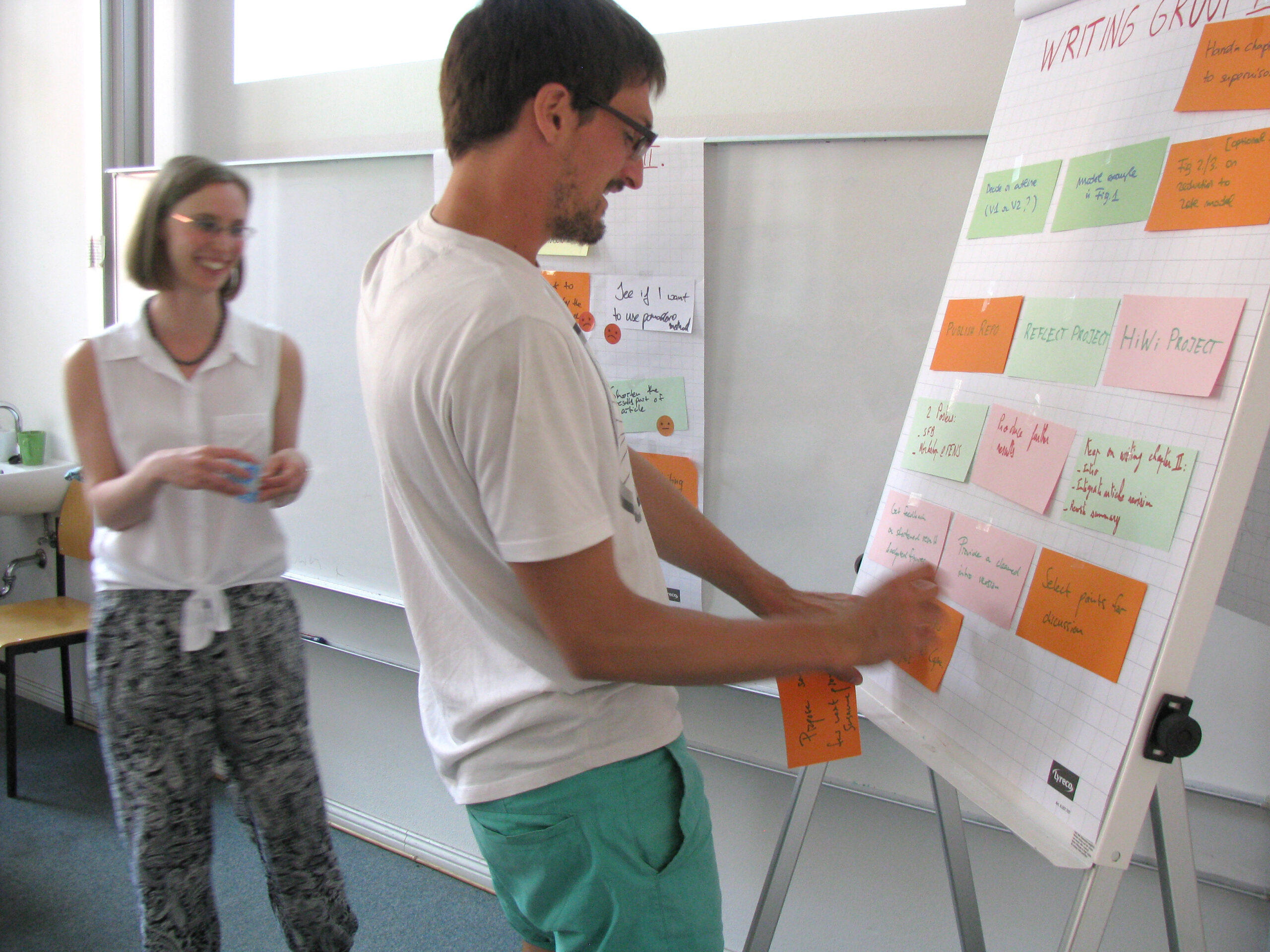
- Criteria & strategies for journal selection
- Overview of the peer-review process
- Writing a letter to editor
- Responding to reviewer comments
- Effective collaboration with co-authors
- Open science & emerging alternatives to traditional publishing
Bonus classes
Get further resources to optimize related processes.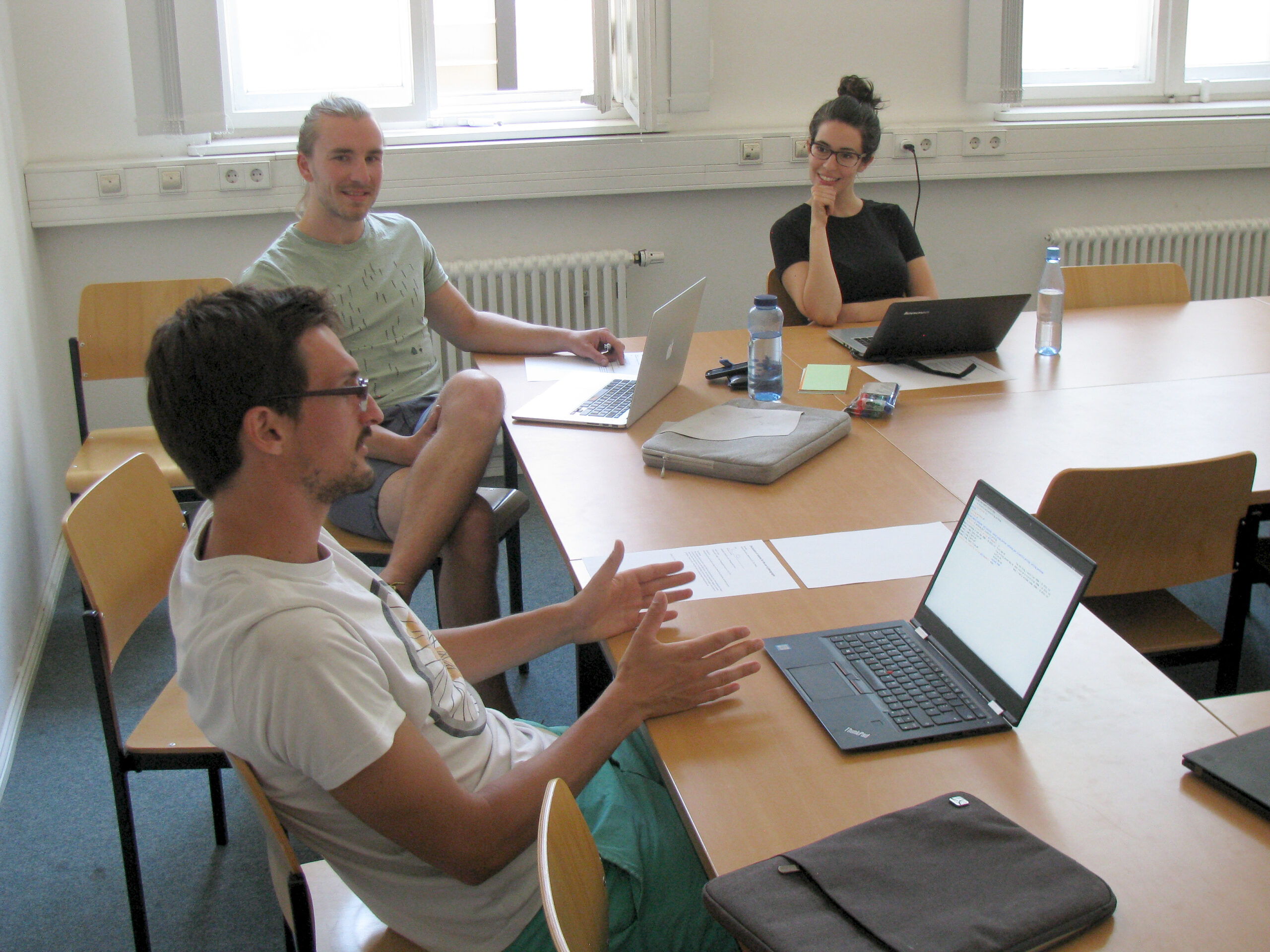
- Effective reading strategies
- How to approach the literature review
- How to leverage your message with great figure design
- How to effectively use chatGPT and other AI tools
Bonus support after the course
Join monthly peer-feedback sessions for alumni for free.
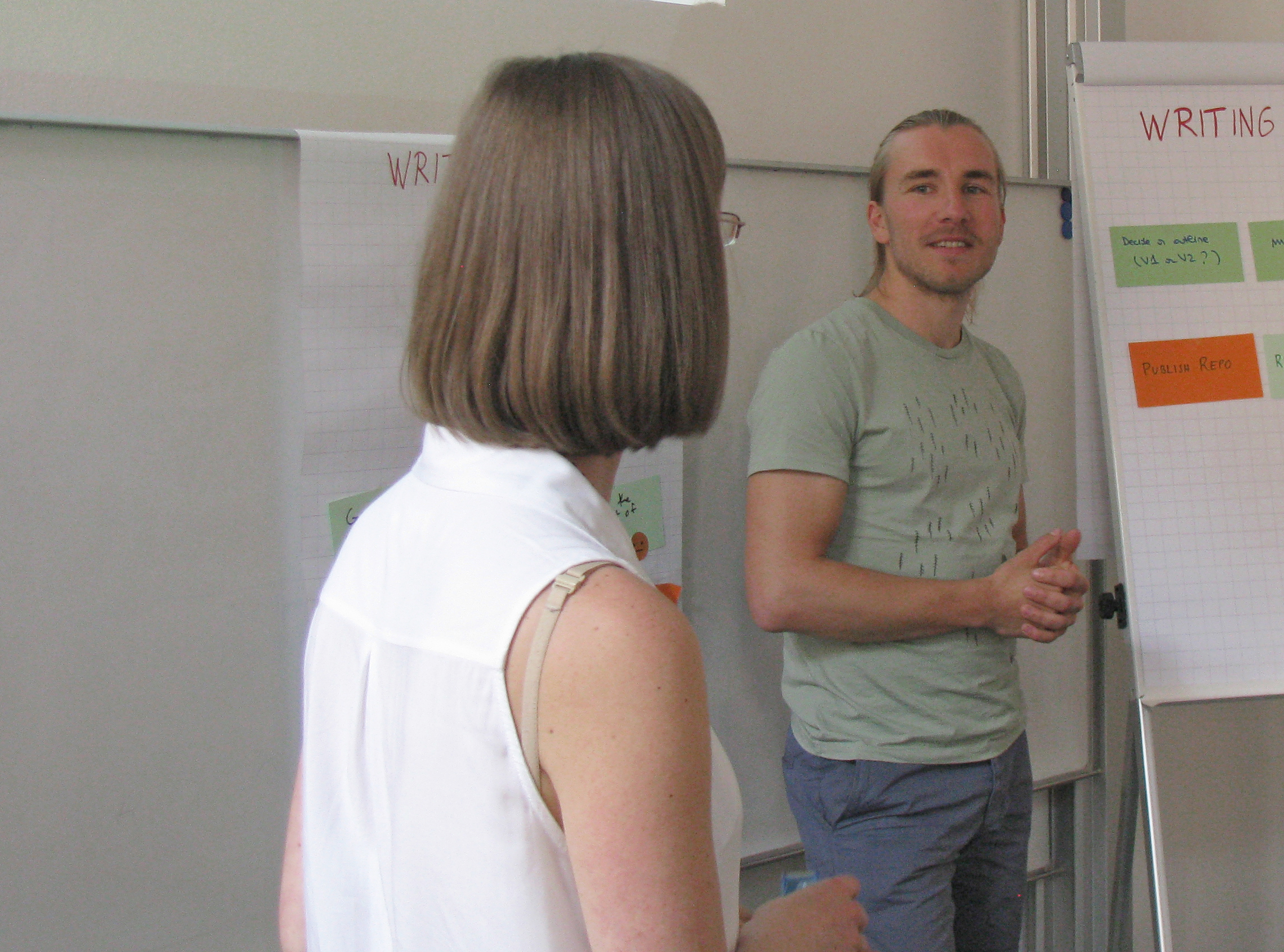
- Get regular feedback on your texts
- Practice your revising skills through feedbacking other texts
- Get answers to your questions
- Feel inspired and motivated through the community support
My text usually makes little sense, it’s lengthy and not so clear. And it is hard for me to revise it. I expected to learn the concepts of scientific writing and how to organize the text. I also wanted to increase my productivity in writing. My expectations were more than met! The new know-how helps me to break the impossible task of writing the whole manuscript into small steps. Doing so enables me to make progress with less pain. ^^ The course is well organized and professional and Dr. Martina Michalikova is a great instructor. I would recommend her trainings to anyone who has troubles in scientific writing.
Thank you one more time for the excellent course on scientific writing you gave at the end of 2020. It was an eye-opening experience for me, and after following your suggestions my writing has improved significantly. I am very happy to let you know that one of my papers that we analyzed at a peer-review session has recently been accepted by a high-level journal, and every one of the four referees emphasized that the text is very well written and structured (thanks to you!). Fantastic and very important for my career!
Frequently asked questions
General
Q1: For whom is this course?
This course is ideal for PhD students and other early-career researchers from natural & life sciences, other STEM disciplines as well as the quantitative branch of social sciences.
Q2: What is the duration of the course?
The course lasts 8 weeks. During these 8 weeks, there are 4 bi-weekly modules as a focus, and 5 weekly Q&A session, and 3 moderated peer-feedback training sessions. All live sessions will be recorded and provided to the course participants.
Q3: What is the weekly workload? How much time do I need to invest in the course?
The average workload is 1-3 hours per week: For each of the four bi-weekly modules, you will need around 2 hours of time to watch the videos and 1-3 hours to do the homework/exercises. Then, you can (but don’t have to) take part in the weekly Q&A session (which typically lasts around 1 hour) and in the second half there will be 3 peer-feedback training sessions, each lasting 2 hours.
However, you can also work through the course contents more slowly, as you will keep the access to all course materials for at least the next 2 years.
Booking & access
Q4: I would like to ask my unversity/Phd program to cover the course fee. Can you provide a summarizing information to show to the administrators?
Yes, we are happy to provide a PDF with course overview.
Q5: Can I get an invoice addressed to my university?
Yes: When you are booking the course, you can choose the option “I am ordering as company” and then enter the address of your university (you will need to provide the VAT identification number of your university as well — this is usually published online on the website of the university). Then you will get an invoice that is addressed to your university. Should anything not look like you need it to be, please let us know and we will fix it: info@writingscientist.com.
Q6: What are the payment options?
You can pay via PayPal, credit card, bank transfer (called “bank wire” here) or, if you are located in EU, via SEPA Direct Debit from your bank account.
Q7: What if I don’t like the course? Can I withdraw and get my money back?
Yes, you can cancel your booking within 14 days and your money will be refunded. No questions asked.
Q8: What if I need longer than 8 weeks to get through the course contents? How long can I access the materials?
The live Q&A sessions stop after 8 weeks, but the participant retain access to all course materials as well as the course facebook group for at least the next 2 years. Moreover, there will be a bonus Q&A and peer-feedback session two months after the course ends for additional support.
Q&A sessions
Q9: When do the live Q&A sessions take place?
The Q&A sessions take place on Oct 09, 16, 23 and Nov 06 and 20, 2026, at 3 PM (UTC+2 until Oct 26, UTC+1 afterwards).
Q10: What is the duration of the Q&A sessions?
The Q&A sessions will last as long as it is needed to answer all participants questions (typically around 1 hour).
Q11: What if I can’t attend the live Q&A sessions?
All Q&A sessions will be recorded. You can submit your questions prior to the live sessions and then watch the answer in the recording. Recorded Q&A sessions will be annotated with timestamps for each question, so that you can quickly find the answer to your question.
Moderated peer-feedback sessions
Q12: When do the moderated peer feedback sessions take place?
The three moderated peer-feedback sessions take place on Oct 30 and Nov 13 and 27, 2026, at 3-5 PM (UTC+1).
Q13: What if I can’t attend the moderated peer-feedback sessions?
You can later watch the recorded peer-feedback sessions and practice on your own with the provided text.
Miscellaneous
Q14: Will I get a certificate so that this course can be acknowledged for my (PhD) studies?
Yes, you can get a course certificate outlining the course contents and the workload (20h without homework, 30h with completed homework).
Q15: Is this course for me if I have problems with the English language?
This course does not provide materials for improving the English language but it does tackle the issue of how to write effectively if English is not your mother tongue. To maximally benefit from the course, you should be sufficiently fluent in English: you should be able read & understand English papers from your field without the need to use a dictionary.
Q17: Will there be also a course for writing review papers?
No, such a course is not planned at the moment. However, there is a bonus lecture on writing a literature review included in this course.